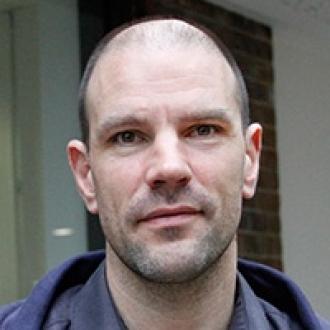
Acting against ageism
Introduction
'Acting against ageism' is a practice-led, participatory research project based at the University's London School of Film, Media and Design. The project brings together researchers from the arts, humanities and social sciences to realise an innovative, interdisciplinary research approach to decontextualise age-related stereotypes in British society.
Project overview
Ageism is the most commonly experienced form of discrimination in the UK, yet it is often overlooked when discussing forms of representation in narrative media and their contribution to negative stereotypes and subsequent impact on socio-cultural understandings of identities.
Building on previous research into ageist portrayals in film and advertising, our current project aims to conduct comprehensive discourse analyses of various media depictions of older people. This analysis will uncover recurring age-related stereotypes that fuel ageist discrimination and highlight the need for a media guidance framework to combat these issues.
Our findings will inform a practice-led approach to creating a play that decontextualises ageist assumptions, presenting them in an individuated and personalised narrative form. Scheduled to debut in London in spring 2025, the play will be the centrepiece of three public engagement events. These events will involve diverse audiences and expert panels, serving as both audience research and industry consultations.
The insights gained will aid in developing industry guidelines to be shared with key stakeholders, aiming to influence media portrayals of older people and disrupt the cycle of ageist representation and negative public perceptions of ageing.
Project structure
The project will run from April 2024 to October 2025 and will be executed in three stages:
1. Insight-led artefact development
Conduct extensive discourse analyses of media representations of older people to inform the development of an original stage play that decontextualises and recontextualises ageist stereotypes.
2. Public engagement
Use the stage play as the focal point for public engagement events with relevant stakeholders and the general public to discuss socio-cultural constructions of ageism.
3. Guideline development
Collaborate with stakeholders to develop guidelines that will contribute to anti-ageist discourse and media representation.
Research team
Principle investigator:
-
Associate Professor Dennis Olsen
Associate Professor (Reader) of Advertising and BrandingLondon School of Film, Media and DesignDennis' interdisciplinary work in branded communications is framed by sociological, cultural and psychological perspectives. He sees this triangulation as an excellent fit for advertising and branding specialists, who are facing increasing challenges in all three of these areas within a fast-paced globalised world that requires interaction with a variety of stakeholders.
Co-investigators:
-
Dr Jonathon Crewe
Associate Professor in Film and Creative Writing
-
Dr Marcus Nicholls
Associate Professor in Film and Media
-
Related resources and project outputs
Nicholls, M., Crewe, J. and Olsen, D.A.: ‘House, Tree, Person: Allegories of Age Anxiety and Dementia Dread in Hereditary (2018)’. Submitted to: Horror Studies. Anticipated publication in 2025.
Olsen, D.A., Nicholls, M. and Crewe, J.: ‘Exploring loneliness in later life through British cinema narratives’. Submitted to: Edinburgh University Press. Anticipated publication in 2026.
Published
Crewe, J., Nicholls, M. and Olsen, D.A. (2024) ‘The impact of gender on the representation of characters aged over 50 in British films between 2021-22’, Screenworks, 14(1). https://doi.org/10.37186/swrks/14.1
Olsen, D.A. (2024) ‘Rewriting the myth of invisibility: the presentation of older adults in Australian advertising’, in Stumpf, M. (ed.), Diversity in der Wirtschaftskommunikation. Berlin: Springer, pp. 217-238. https://doi.org/10.1007/978-3-658-43199-0_9
Olsen, D.A., Crewe, J. and Nicholls, M. (2023) Screening older age. The representation of older adults in British cinema between 2010 and 2022. London: Centre for Ageing Better. https://ageing-better.org.uk/sites/default/files/2023-02/cast-aside-full-report.pdf
Olsen, D.A. and Scott, C. (2021) ‘Different stories: Investigating promotional narratives featuring older characters from minority ethnic groups in current British TV advertising’, New Vistas, 7(2), pp. 31-35.
Olsen, D.A. and Scott, C. (2021) 'Golden Years, Wise Mentors and Old Fools: An Updated Typology of Older Characters in British TV Advertising', Aging and Social Change, 11(2), pp. 83-94.
Find out more
-
Research Centres and Groups
Find out about our multi-disciplinary areas of expertise, PhD research, and teaching.
-
Research impact
Learn how our PhD research has helped communities locally, nationally and internationally.
-
The Graduate School
If you are interested in studying for a PhD or Professional Doctorate, the Graduate School is here to support your research.








